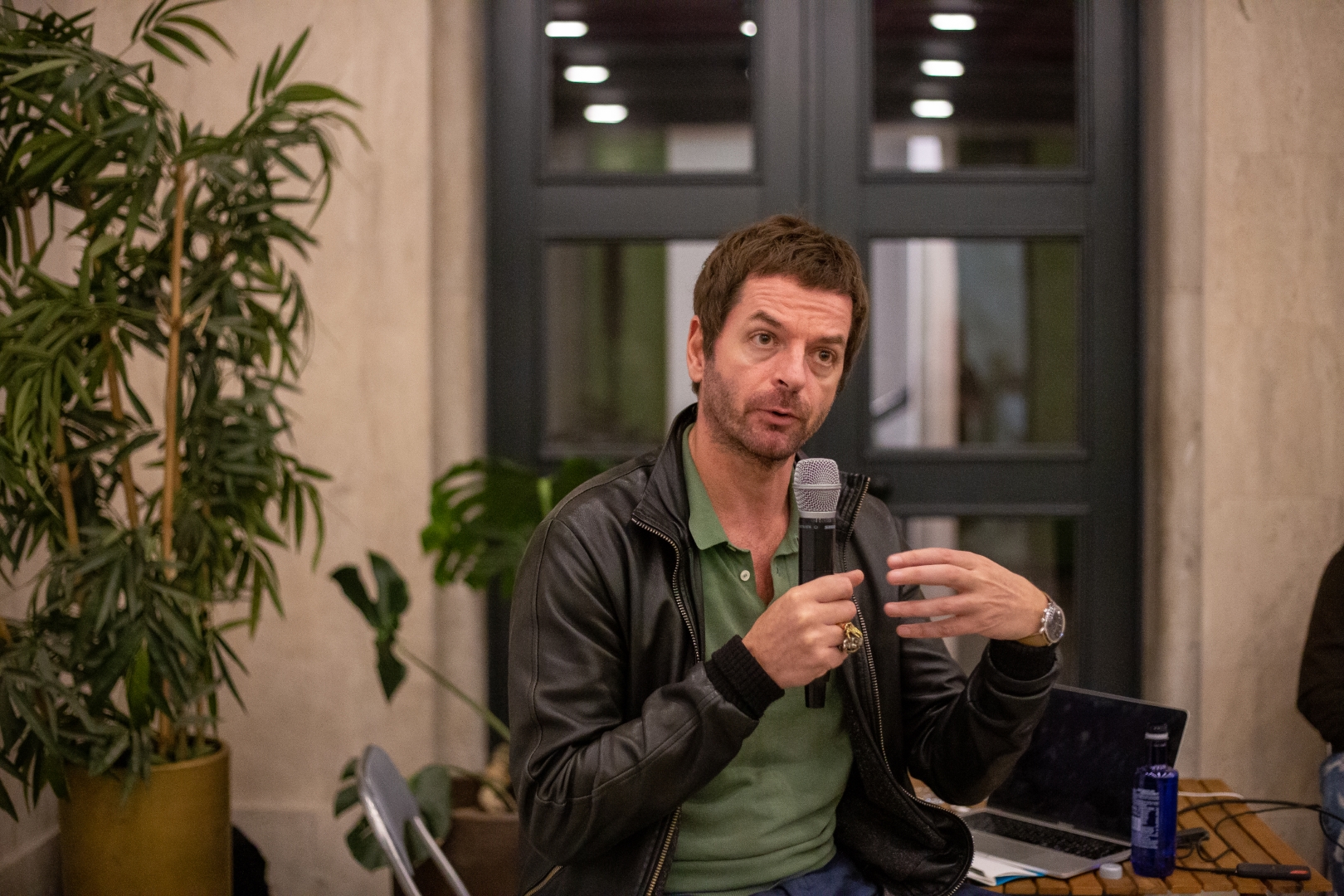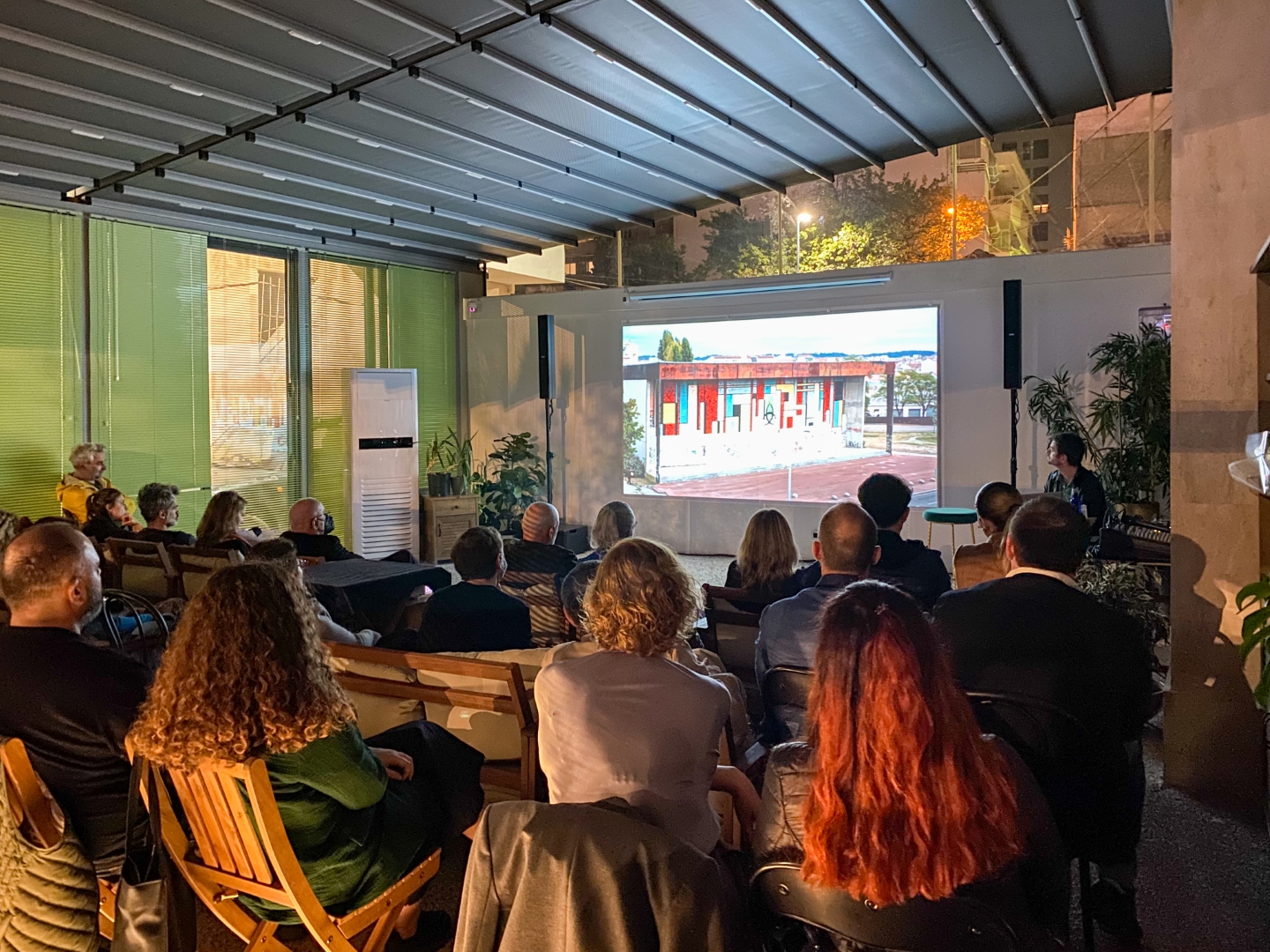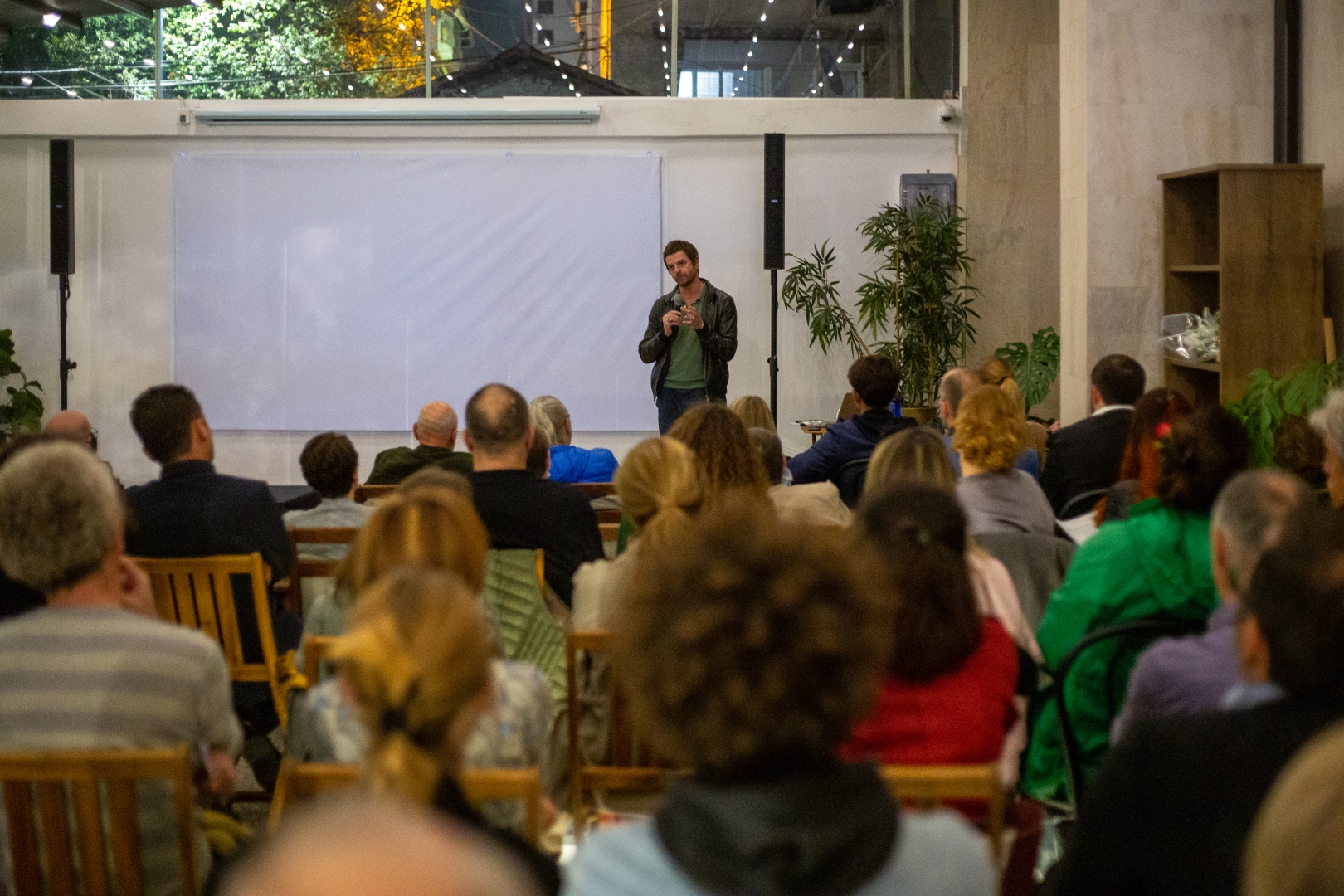Harabel Contemporary Art Platform invited artist Anri Sala to present two of his short films Le Clash (2010) and Tlatelolco Clash (2011) for the Albanian public, at the premises of Destil, Tirana. The presentation of the films was followed by a conversation between the artist and the public.

Le Clash (2010)
In Le Clash the performers play a part of the song “Should I Stay or Should I Go” outside an abandoned concert hall in Bordeaux, France.
Two musicians walk near the concert hall, slowly rotating the handle of a barrel organ which emits sounds through the perforated papers that are placed in it.
In the same space a man wanders around holding a white box under his arm. As he approached the concert hall, he slowly rotates a small handle which is installed in this music box, emitting the sounds of a different version of the song.
The echo element is approached in its two dimensions: that of time and that of space, as the same music is reproduced decades later and at the same time the music is (re)brought to the walls of this abandoned place where it was once performed.
Tlatelolco Clash (2011)
Tlatelolco Clash shows scenes among the ruins of the Tlatelolco archeological site in Mexico City, while a group of people become part of it holding a perforated sheet of music containing the result of the aforementioned melody from The Clash.
Although the sheets are coded with the same piece of music, when placed on the barrel organ, each of them creates a different melody, thus giving a different rhythm to the song.
In the end, the perforated sheets are placed in one line and when united together they form the correct sounds of this musical melody.
Anri Sala created this movie by exploring the content of the historical memory and the context of physical space. He believes that the environment and architecture play an important role for the performance of sound in his works.
This event was realized with the support of the Ministry of Culture.
Anri Sala was born in Tirana, Albania, in 1974. He studied painting at the National Academy of Arts in Tirana. Later he studied video at the Ecole Nationale Supérieure des Arts Décoratifs in Paris, followed by film directing at Le Fresnoy – Studio National des Arts Contemporains – in Tourcoing, France. In 2001 he received the Young Artist Award at the 49th Venice Biennale. His works have been widely exhibited in various international institutions. Anri Sala has had solo exhibitions at the Musée d’art Contemporain, Montreal, Canada (2011); The Museum of Contemporary Art in North Miami (2008) and the ARC Musée d ‘art modern de la ville de Paris (2004). He also participated in numerous international group exhibitions, including: Venice Biennale (2001, 2003 and 1999), Yokohama Triennale (2001) and Manifesta 3, Ljubljana (2000). Anri Sala won several awards: Vincent (2014); Mario Merz Award (2014); 10th Benesse Prize (2013); Absolute Art Award (2011).
While exposing the slowness, the serenity and the intimate details, Sala explores the boundary between documentary and fiction. His works of art reveal a sub stream of tension that speaks of political and social realities, articulating on loss and alienation through the specification of a place and the cultural context that seems rooted in memory and history.








